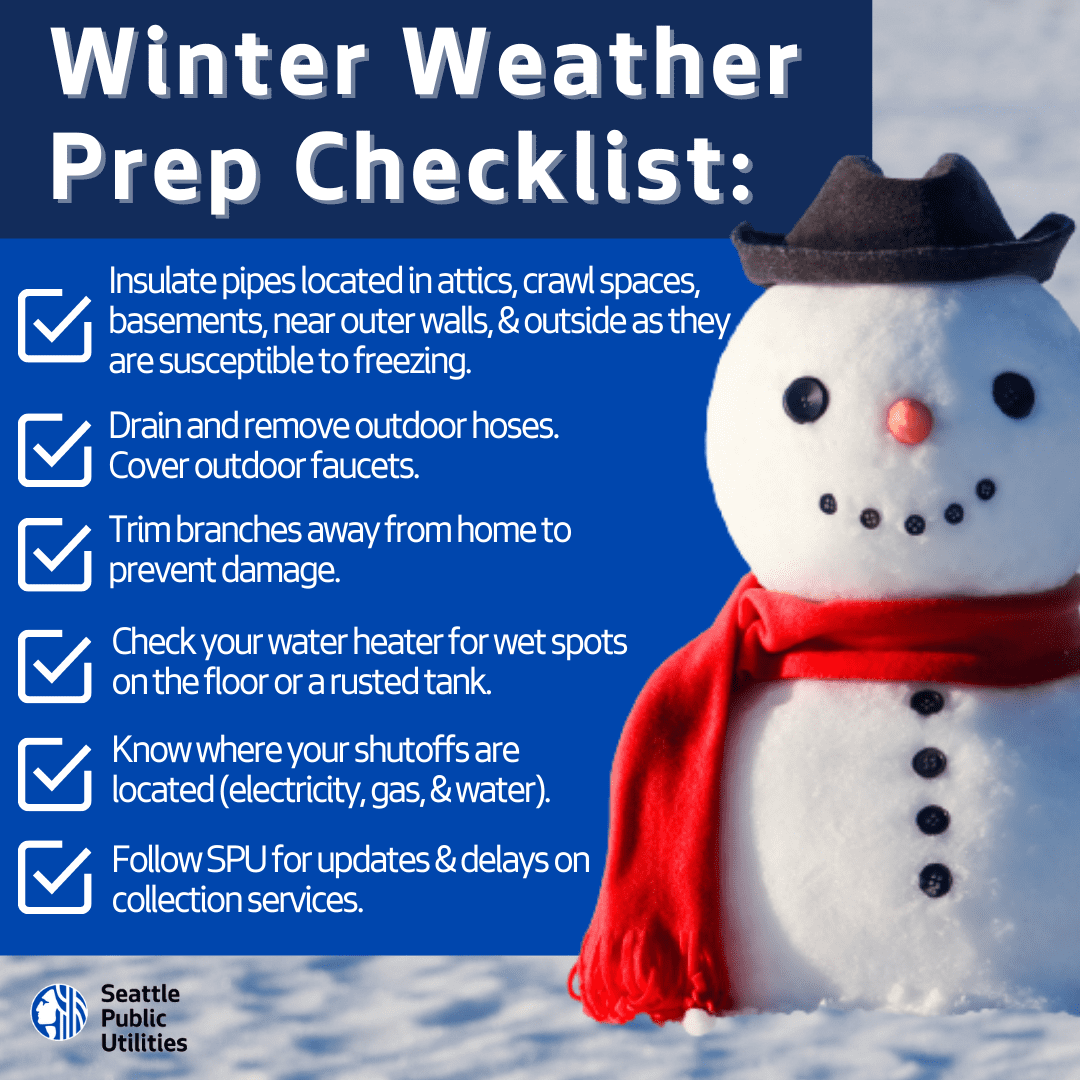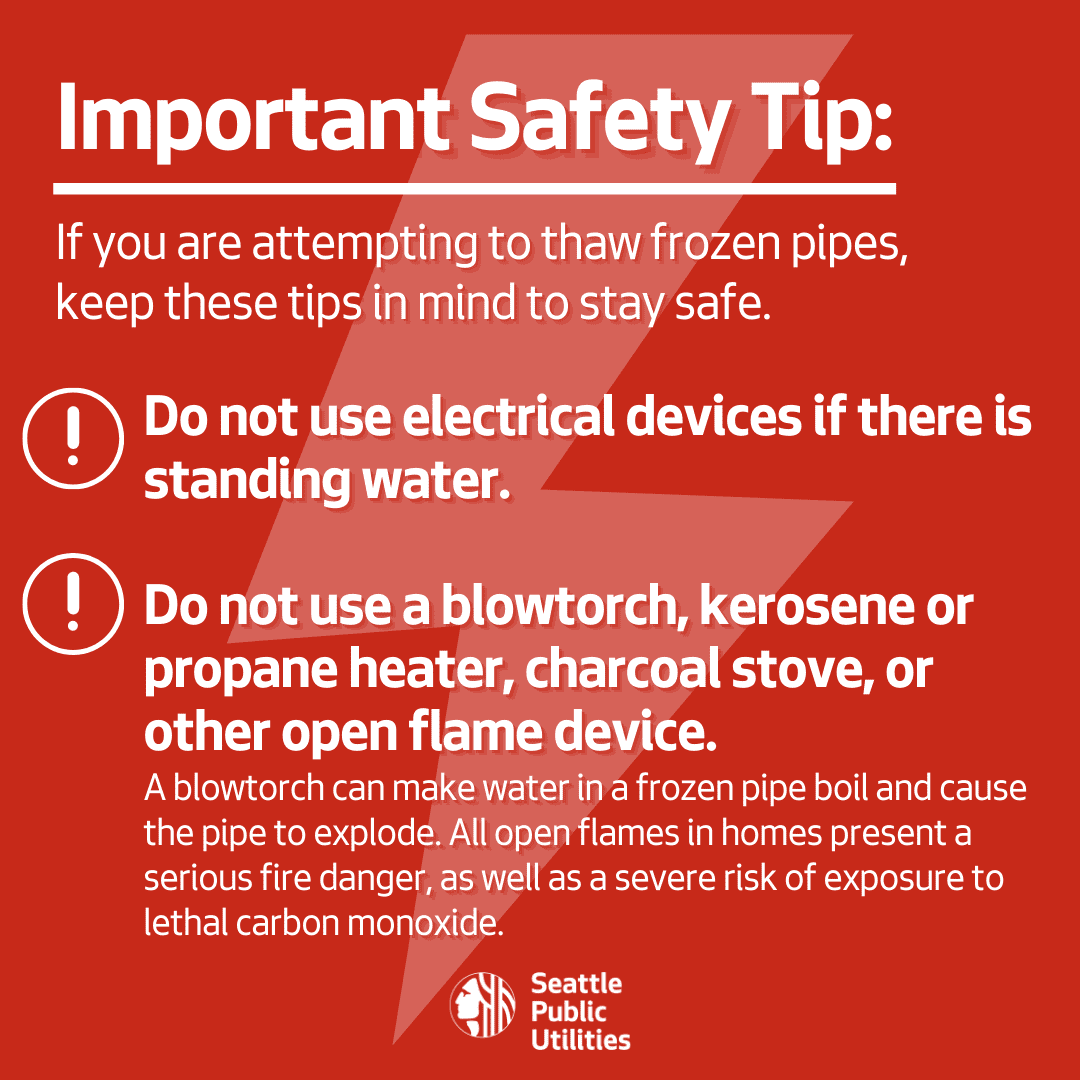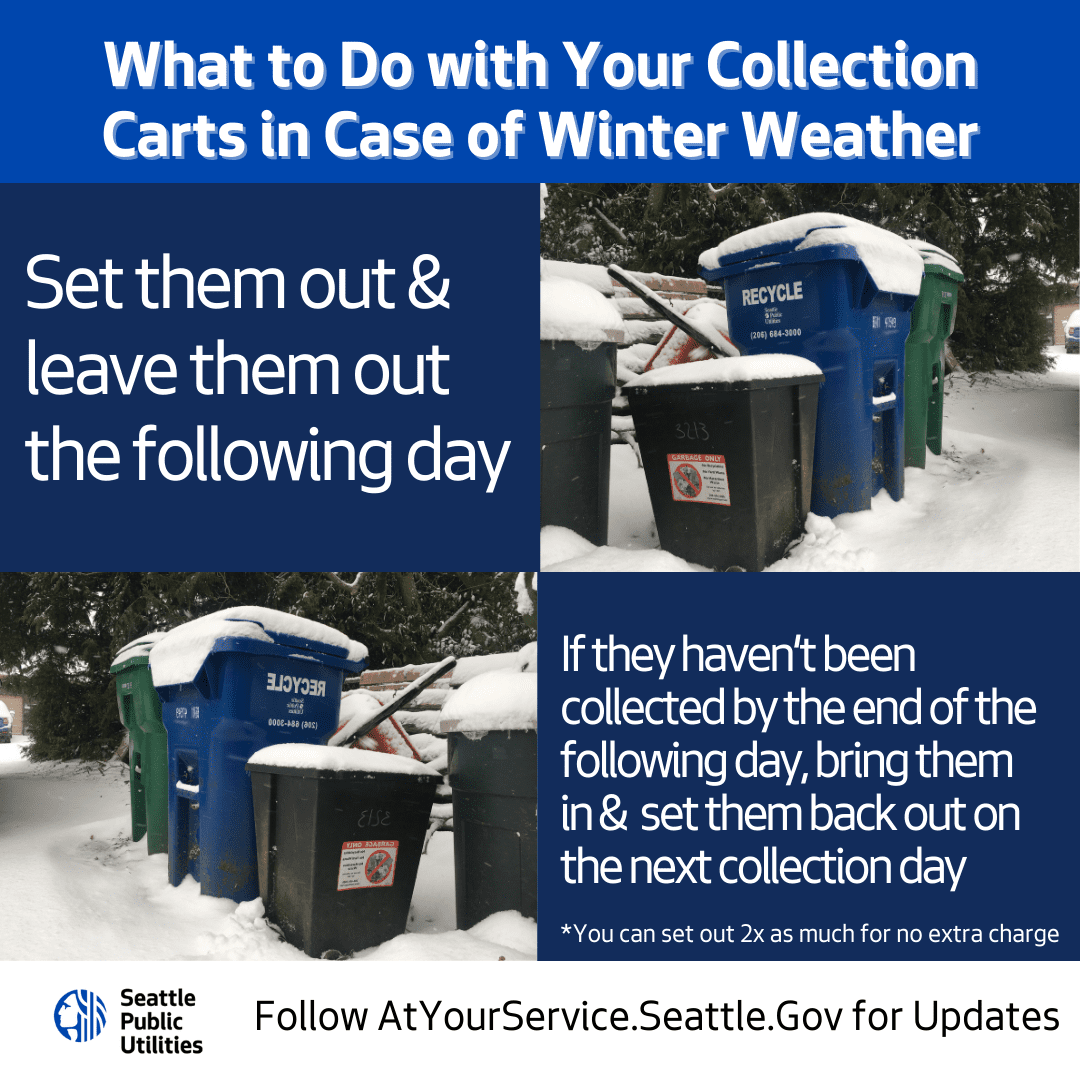With winter weather on the way, SPU has some helpful tips for Seattle residents on how they can prepare beforehand as well as what to do during inclement weather. Seattle may not be known for severe and relentless winter weather, but from time to time, winter storms can hit. A typical Seattle winter can see weather ranging from occasional ice and snow to the more intense winter weather system bringing a wintery mix that can last days. In any case, proper preparation and staying informed are the keys to keeping your cool this winter.
Protecting Your Pipes from Freezing
During periods when temperatures dip close to and below freezing, follow these tips to help ensure your pipes don’t freeze and burst, which can lead to major damage to your home.
What to Do BEFORE Cold Weather
- Protect water pipes from freezing in exposed or unheated areas (attics, basements, and garages) by wrapping them with tape and insulating materials from hardware stores. Follow manufacturers’ installation instructions.
- Drain and remove all outdoor hoses and cover faucets for hose bibs.
- Caulk around pipes where they enter the house.
- Shut off in-ground sprinklers and drain them.
- Know where your shutoffs are located. If an emergency occurs, you’ll need to know how to shut off electricity, gas and water at main switches and valves. You’ll want to know where these are BEFORE an emergency happens.
What to Do DURING Cold Weather
- Protect indoor sink pipes that are against exterior walls by opening under-sink cabinet doors to allow indoor heat to circulate.
- Allow one indoor faucet to slowly drip cold water. Select the faucet that is the farthest from your front door. Do not leave water running in unoccupied areas.
- Set your thermostat no lower than 55 degrees day or night (even if you are away).
What to Do IF Your Pipes Freeze (but haven’t burst)
An early warning sign of frozen pipes can be found by turning on the water at your tap. If only a trickle or no water at all comes out of the faucet, your pipes may be frozen.
If you believe your pipes have frozen, follow these steps to stay safe and minimize damage.
- Locate the suspected frozen area of the water pipe. Likely places include pipes running against exterior walls or where your water service enters your home through the foundation.
- Keep the faucet open. As you treat the frozen pipe and the frozen area begins to melt, water will begin to flow through the frozen area. Running water through the pipe will help melt more ice in the pipe.
- Apply heat to the section of pipe using towels soaked in hot water wrapped around the pipe, an electric heating pad wrapped around the pipe, or an electric hair dryer.
- Apply heat until full water pressure is restored. If you are unable to locate the frozen area, if the frozen area is not accessible, or if you cannot thaw the pipe, call a licensed plumber.
- Check all other faucets in your home to find out if you have additional frozen pipes. If one pipe freezes, others may freeze, too.
What to Do if Your Pipes Burst
A burst pipe can be very scary. Follow these steps to minimize damage and get the situation under control as quickly as possible.
- Immediately close the main shut-off valve to stop flooding. The shut-off valve can be indoors or outdoors, usually in a basement, crawlspace, or garage. Ideally, you’ll have located this BEFORE the pipe has burst as part of your winter weather preparation.
- If you cannot turn off the main shut-off valve, SPU customers can call (206) 386-1800 and a crew member will turn off the water at the meter for a service charge. This phone number is staffed 24/7.
- Call a plumber to repair or replace the damaged section of pipe as soon as possible.
Solid Waste Collection Delays: Stay in the Know When Winter Weather Hits
If snow and ice are in the forecast, it could mean your solid waste collections will be delayed due to inclement weather. If this happens SPU will send notifications to impacted customers via the following methods:
- Alert Seattle notifications
- Recycle It App
- Twitter, Facebook, Instagram, Nextdoor, & the At Your Service blog
For more information on other city-wide services, including updates on current services, interruptions, and alerts, visit any of these resources:
- Seattle Department of Transportation (SDOT), & Seattle City Light on Twitter
- Alert Seattle – Sign Up for notifications SDOT’s Winter Weather Response
- King County Winter Weather Information including cold weather shelters, transit alerts, road alerts, school closures and more


